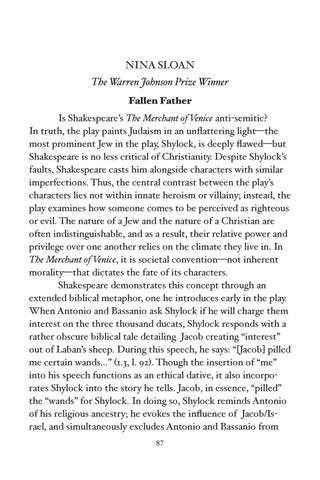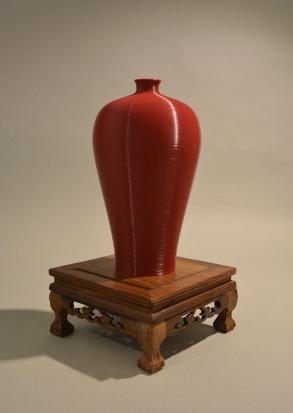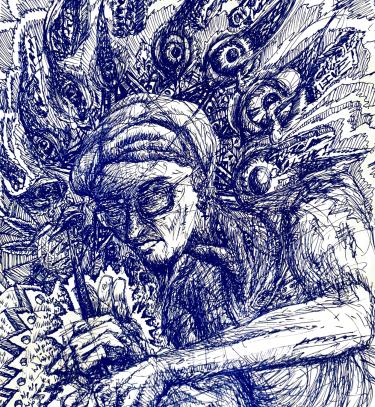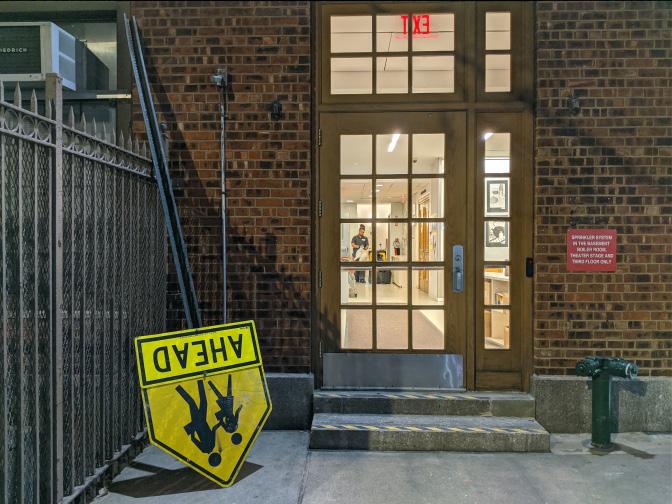NINA SLOAN The Warren Johnson Prize Winner Fallen Father Is Shakespeare’s The Merchant of Venice anti-semitic? In truth, the play paints Judaism in an unflattering light––the most prominent Jew in the play, Shylock, is deeply flawed––but Shakespeare is no less critical of Christianity. Despite Shylock’s faults, Shakespeare casts him alongside characters with similar imperfections. Thus, the central contrast between the play’s characters lies not within innate heroism or villainy; instead, the play examines how someone comes to be perceived as righteous or evil. The nature of a Jew and the nature of a Christian are often indistinguishable, and as a result, their relative power and privilege over one another relies on the climate they live in. In The Merchant of Venice, it is societal convention––not inherent morality––that dictates the fate of its characters. Shakespeare demonstrates this concept through an extended biblical metaphor, one he introduces early in the play. When Antonio and Bassanio ask Shylock if he will charge them interest on the three thousand ducats, Shylock responds with a rather obscure biblical tale detailing Jacob creating “interest” out of Laban’s sheep. During this speech, he says: “[Jacob] pilled me certain wands…” (1.3, l. 92). Though the insertion of “me” into his speech functions as an ethical dative, it also incorporates Shylock into the story he tells. Jacob, in essence, “pilled” the “wands” for Shylock. In doing so, Shylock reminds Antonio of his religious ancestry; he evokes the influence of Jacob/Israel, and simultaneously excludes Antonio and Bassanio from 87
Issuu converts static files into: digital portfolios, online yearbooks, online catalogs, digital photo albums and more. Sign up and create your flipbook.









